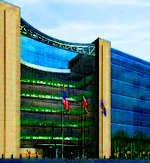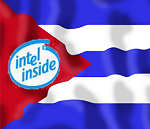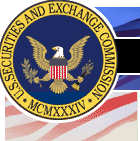 You may never have heard of the SEC’s Office of Global Security Risk and probably have no idea what they do. Well, although I know what they are supposed to do, I have always wondered what the people at that office do during the work day.
You may never have heard of the SEC’s Office of Global Security Risk and probably have no idea what they do. Well, although I know what they are supposed to do, I have always wondered what the people at that office do during the work day.
Now we know. They surf websites looking for sanctioned countries, like Syria and Sudan, in drop down address lists on the websites of U.S. companies. Allegedly this is to advise U.S. investors about publicly-traded companies that supposedly jeopardize their stockholders’ investments by dealing with sanctioned countries.
After a heavy day of web surfing the Office of Global Security Risk fired off this missive to UPS in respect to a price table it found on the UPS site.
We also note an Air Freight peak season surcharge table on your website which lists surcharge amounts for regions including Latin America and Europe, Middle East, Africa in the Destination section. According to the notes section, the destinations listed include Cuba under “Latin America (All Other Countries)†and Iran, Sudan and Syria under “Europe, Middle East, Africa.†Iran, Sudan and Cuba are identified by the U.S. State Department as state sponsors of terrorism and are subject to U.S. economic sanctions and export controls.
Apparently the SEC thinks that all exports to these countries are banned. The time that the OGS staff spent surfing the web apparently did not extend to researching economic sanctions laws and discovering, say, TSRA, which permits exports of agricultural products, medicine and medical devices to sanctioned countries. Or the Berman amendment which permits export of informational materials. Never mind any of the other exceptions.
UPS replied by saying this:
The appearance of any country on the sanctions list on a UPS listing of surcharge amounts, explained [UPS Vice-President Norman] Brothers, applies only to lawful deliveries. “During the period July 10, 2006 through December 31, 2010, UPS rejected at least 55 shipments destined for Syria because they were determined to be impermissible under U.S. export controls.â€
The SEC was reportedly unembarrassed its crude understanding of U.S. export laws and immediately returned to more web surfing. You can start humming that Gershwin tune: “Nice work if you can get it.”

 Posted by
Posted by  Category:
Category: 

 An earlier
An earlier  A
A  We’d like to think that our
We’d like to think that our 

